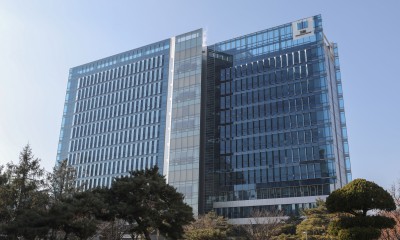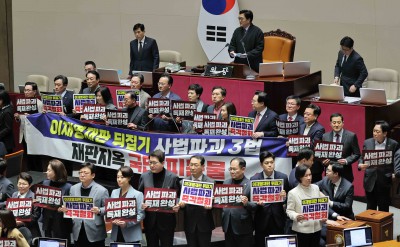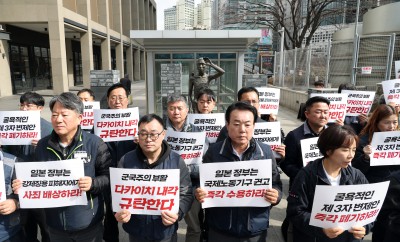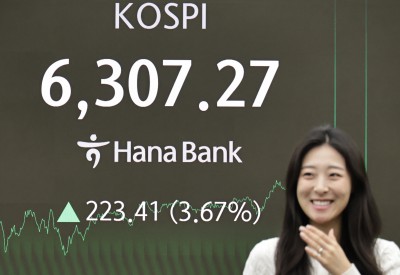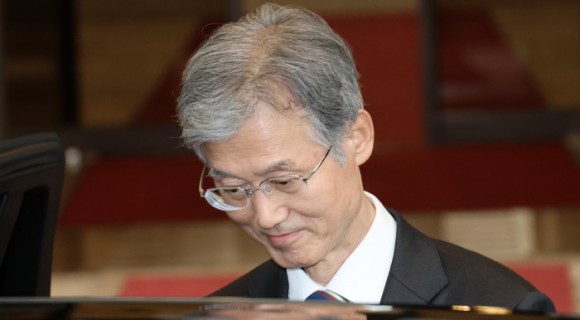Communiqué
Meeting of Finance Ministers and Central Bank Governors,
23 April 2010
1. We, the G20 Finance Ministers and Central Bank Governors, met in Washington D.C. to ensure the global economic recovery and the transition to a strong, sustainable and balanced growth as well as our agendas for the financial regulatory reform and international financial institutions remain on track.
2. The global recovery has progressed better than previously anticipated largely due to the G20’s unprecedented and concerted policy effort. However, it is proceeding at different speeds within and across regions, and unemployment is still high in many economies. We recognize that in such circumstances different policy responses are required. In economies where growth is still highly dependent on policy support and consistent with sustainable public finances, it should be maintained until the recovery is firmly driven by the private sector and becomes more entrenched. Some countries are already exiting. We should all elaborate credible exit strategies from extraordinary macroeconomic and financial support measures that are tailored to individual country circumstances while taking into account any spillovers. We emphasized the necessity to pursue well coordinated economic policies that are consistent with sound public finances; price stability; stable, efficient and resilient financial systems; employment creation; and poverty reduction. Countries who have the capacity should expand domestic sources of growth. This would help cushion a decline in demand from countries that should boost savings and reduce fiscal deficits.
3. Our Framework for Strong, Sustainable and Balanced Growth for the global economy is a key mechanism through which we will continue to work together to address the challenges associated with achieving a durable recovery and our shared objectives. In accordance with our timetable set out in St Andrews, we have conducted, with support from the IMF and World Bank, the initial phase of our cooperative and consultative mutual assessment process for the Framework by sharing our national and regional policy frameworks, programs and projections, assessing their collective consistency with our objectives, and producing a forward-looking assessment of global economic prospects. We further provided guidance to the IMF, and other international organizations, to assist us in assessing collective implications of national policies that could improve our global economic prospects and bring us closer to our shared objectives. For this purpose, we have agreed on principles to direct the development of alternative policy scenarios and have further elaborated the objectives of strong, sustainable and balanced growth as outlined in the Annex to this Communiqué. Drawing on these inputs we will deliver an initial set of policy options for consideration by our Leaders at the June 2010 Summit.
4. Recognizing the increasingly integrated nature of the financial regulatory reform issues, we reaffirmed our strong commitment to fully implement our reform agenda on the timelines agreed by Leaders in London and Pittsburgh. Good progress is being made and, to maintain the momentum, we:
reaffirmed our reform is multi-faceted but at its core must be stronger capital standards, complemented by clear incentives to mitigate excessive risk-taking practices. We recommitted to developing by end-2010 internationally agreed rules to improve both the quantity and quality of bank capital and to discourage excessive leverage. These rules will be phased in as financial conditions improve and economic recovery is assured, with the aim of implementation by end-2012. Implementation of these new rules should be complemented by strong supervision. We stressed the importance of the quantitative and macroeconomic impact studies underway and look forward to an update on their progress by the FSB for our June meeting.
agreed to closely review the progress of and provide guidance and strong support for the work of the FSB, BCBS and IMF. We support the work of the FSB to develop prudential standards, market infrastructures to contain the propagation of shocks and resolution tools and frameworks for systemically important financial institutions and look forward to a progress report for our meeting in June 2010. We look forward to receiving the IMF’s final report on the range of options that countries have adopted or are considering as to how the financial sector could make a fair and substantial contribution towards paying for any burdens associated with government interventions to repair the banking system. We call on the IMF for further work on options to ensure domestic financial institutions bear the burden of any extraordinary government interventions where they occur, address their excessive risk taking and help promote a level playing field, taking into consideration individual country’s circumstances. We welcomed the FSB, IMF and BCBS’s joint report on the inter-linkages between these issues and noted that, moving forward, we need to take into account the cumulative impact of the reforms on the financial system and the wider economy to move unequivocally in the direction of sound and stronger capital and liquidity framework ; and
stressed the importance of achieving a single set of high quality, global accounting standards; implementing international standards with regard to compensation practices and welcomed the FSB’s report; completing the development of standards for central clearing and trading on exchanges or electronic platforms of all standardized over-the-counter derivative contracts, where appropriate, and reporting to trade repositories of all over-the-counter derivative contracts; and consistent and coordinated oversight of hedge funds and credit rating agencies. We welcomed the progress by the Financial Action Task Force in the fight against money laundering and terrorist financing, particularly regarding the issue of a public statement on jurisdictions with strategic deficiencies last February. We also welcomed the report by the Global Forum on Tax Transparency and Exchange of Information, the launch of the peer review process, and the development of a multilateral mechanism for information exchange which will be open to all countries. We welcomed the launch of the evaluation process by the FSB on the adherence to prudential information exchange and cooperation standards in all jurisdictions.
5. We noted the draft report on the scope of energy subsidies and suggestions for the implementation of the Pittsburgh commitment from the IEA, OPEC, OECD and World Bank. In accordance with country ownership and circumstances and recognizing the importance of providing those in need with essential energy services, we recommitted to prepare strategies and timetables for our meeting in June to rationalize and phase out, over the medium term, of inefficient fossil fuel subsidies that encourage wasteful consumption.
6. We urged progress to deliver on the representation and governance reforms of the International Financial Institutions agreed in Pittsburgh. We urged the IMF to deliver the quota and governance reforms by the November Seoul Summit. We look forward to an agreement on a package of voice reforms and World Bank financial resources, together with reforms to ensure effectiveness, at the upcoming Development Committee meeting. We will work towards ambitious IDA16 and African Development Fund replenishments. We welcomed the agreement in principle to increase the capital of the IaDB and EBRD and to adopt a robust reform agenda and look forward to the conclusion of discussions on general capital increase of the African Development Bank. We agreed to support full relief of Haiti’s debt by all IFIs, including through burden sharing, and welcomed the agreement at the IaDB and World Bank to relieve its debt and the establishment of the Haiti Reconstruction Fund.
7. We acknowledged the progress achieved by the Financial Inclusion Experts Group and look forward to the successful launch of the ‘SME Finance Challenge’. We welcomed the work of the Financial Safety Nets Experts Group and agreed to look at policy options to improve global financial safety nets, based on sound incentives, to better assist countries to deal with volatility in global capital flows. Inefficient markets and excess volatility in commodity prices more generally negatively affect both producers and consumers. We will finalize our work to address excessive commodity price volatility by improving the functioning and transparency of physical and financial markets in both producing and consuming countries.
8. We agreed to meet again on June 4-5 2010 in Busan, Republic of Korea, to prepare for the June Leaders’ Summit in Toronto, Canada.
The G-20 Framework for Strong, Sustainable and Balanced Growth
The primary goal of the Framework is to encourage G20 countries to implement coherent medium-term policy frameworks to attain a mutually beneficial growth path and avoid future crises. While G20 countries should adopt policy frameworks that are appropriate to their individual circumstances, there are clear benefits to collective action to achieve this goal. Such an approach would also raise living standards in emerging markets and developing countries.
Given that it may take several years to realise the benefits of many policy reforms, G20 countries should consider initiating actions now to attain stronger, and more balanced and sustainable growth over the medium term. Policy frameworks should be forward looking to guide expectations and to be sufficiently flexible to manage potential risks and facilitate adjustment to shocks so that strong, sustainable and balanced growth can be maintained.
The objectives of strong, sustainable and balanced growth are closely related and need to be pursued in a way that is mutually reinforcing.
Strong growth should
a.Close current output and employment gaps in G20 countries as soon as possible,
b.Converge to the growth rate of potential output over the medium term, and
c.Be enhanced over the long term by increasing potential output growth, primarily by efficiently utilizing available resources through the implementation of more effective structural policies.
Sustainable growth should be:
a.In line with underlying potential growth over the medium term, thereby providing a firm basis for long term growth,
b.Based on sustainable public finances and price and financial stability,
c.Resilient to economic and financial shocks,
d.Determined primarily by competitive market forces, and
e.Consistent with social and environmental policy goals.
Balanced growth should:
a.Be broadly based across all G20 countries and regions of the world,
b.Not generate persistent and destabilizing internal or external imbalances, and
c.Consistent with broad development goals, in particular, convergence to high standards of living across countries in the long run.
In providing this support to the G-20, the Fund should be informed by the general principles to which G-20 Leaders agreed last year in Pittsburgh (http://www.pittsburghsummit.gov/mediacenter/129639.htm). In addition to this context, the Fund should be guided by the following principles in developing the alternative policy scenarios:
1.The Fund should present a limited number of alternative policy scenarios to Deputies (i.e., no more than 3-4);
2.All scenarios must include policies aimed at ensuring a collective outcome that brings the G-20 closer to its shared objectives as laid out above;
3.All scenarios must demonstrate a shared contribution to adjustment and reform across the G-20 and that the mutual benefits of strong, sustainable and balanced growth should be broadly shared, taking into account the different stages of development for countries as well as the spillover effects across G-20 and non G-20 countries;
4.The Fund should consider the specific and feasible fiscal, monetary, structural and financial sector policy actions necessary to achieve our overarching objectives of strong, sustainable and balanced growth over the medium term;
5.The broad social, environmental and development impacts of the proposed policy recommendations in the scenarios should be considered;
6.The policy scenarios should consider the choices between the pace of implementing policy actions and their feasibility, credibility and effectiveness. As well, consideration should be given to the choices of raising global growth and of achieving more sustainable and balanced growth;
7.Given that it may take several years to realise the benefits of many policy reforms, the scenarios should consider the actions that can be taken now to attain stronger, and more balanced and sustainable growth over the medium term;
8.Policy actions for June should be expressed as actions for groups of countries facing similar circumstances, and regional economic institutions where appropriate, taking into account different national and regional economic structures and policy frameworks; and
9.The Fund should closely consult with G-20 countries throughout the process when assessing the sustainability and stability of an individual country’s macroeconomic policy.
In adopting these principles, the Fund’s report on alternative policy scenarios should clearly describe the global effects of adjustment, as well as the implications for member countries across a spectrum of indicators.
We will ask the World Bank to advise us on progress in promoting development and poverty reduction as part of rebalancing of global growth.
We also look forward to contributions from other international organizations, including the FSB on financial policies, the ILO on labor market policies, the WTO on trade policies, and the OECD and UNCTAD where appropriate.
Meeting of Finance Ministers and Central Bank Governors,
23 April 2010
1. We, the G20 Finance Ministers and Central Bank Governors, met in Washington D.C. to ensure the global economic recovery and the transition to a strong, sustainable and balanced growth as well as our agendas for the financial regulatory reform and international financial institutions remain on track.
2. The global recovery has progressed better than previously anticipated largely due to the G20’s unprecedented and concerted policy effort. However, it is proceeding at different speeds within and across regions, and unemployment is still high in many economies. We recognize that in such circumstances different policy responses are required. In economies where growth is still highly dependent on policy support and consistent with sustainable public finances, it should be maintained until the recovery is firmly driven by the private sector and becomes more entrenched. Some countries are already exiting. We should all elaborate credible exit strategies from extraordinary macroeconomic and financial support measures that are tailored to individual country circumstances while taking into account any spillovers. We emphasized the necessity to pursue well coordinated economic policies that are consistent with sound public finances; price stability; stable, efficient and resilient financial systems; employment creation; and poverty reduction. Countries who have the capacity should expand domestic sources of growth. This would help cushion a decline in demand from countries that should boost savings and reduce fiscal deficits.
3. Our Framework for Strong, Sustainable and Balanced Growth for the global economy is a key mechanism through which we will continue to work together to address the challenges associated with achieving a durable recovery and our shared objectives. In accordance with our timetable set out in St Andrews, we have conducted, with support from the IMF and World Bank, the initial phase of our cooperative and consultative mutual assessment process for the Framework by sharing our national and regional policy frameworks, programs and projections, assessing their collective consistency with our objectives, and producing a forward-looking assessment of global economic prospects. We further provided guidance to the IMF, and other international organizations, to assist us in assessing collective implications of national policies that could improve our global economic prospects and bring us closer to our shared objectives. For this purpose, we have agreed on principles to direct the development of alternative policy scenarios and have further elaborated the objectives of strong, sustainable and balanced growth as outlined in the Annex to this Communiqué. Drawing on these inputs we will deliver an initial set of policy options for consideration by our Leaders at the June 2010 Summit.
4. Recognizing the increasingly integrated nature of the financial regulatory reform issues, we reaffirmed our strong commitment to fully implement our reform agenda on the timelines agreed by Leaders in London and Pittsburgh. Good progress is being made and, to maintain the momentum, we:
reaffirmed our reform is multi-faceted but at its core must be stronger capital standards, complemented by clear incentives to mitigate excessive risk-taking practices. We recommitted to developing by end-2010 internationally agreed rules to improve both the quantity and quality of bank capital and to discourage excessive leverage. These rules will be phased in as financial conditions improve and economic recovery is assured, with the aim of implementation by end-2012. Implementation of these new rules should be complemented by strong supervision. We stressed the importance of the quantitative and macroeconomic impact studies underway and look forward to an update on their progress by the FSB for our June meeting.
agreed to closely review the progress of and provide guidance and strong support for the work of the FSB, BCBS and IMF. We support the work of the FSB to develop prudential standards, market infrastructures to contain the propagation of shocks and resolution tools and frameworks for systemically important financial institutions and look forward to a progress report for our meeting in June 2010. We look forward to receiving the IMF’s final report on the range of options that countries have adopted or are considering as to how the financial sector could make a fair and substantial contribution towards paying for any burdens associated with government interventions to repair the banking system. We call on the IMF for further work on options to ensure domestic financial institutions bear the burden of any extraordinary government interventions where they occur, address their excessive risk taking and help promote a level playing field, taking into consideration individual country’s circumstances. We welcomed the FSB, IMF and BCBS’s joint report on the inter-linkages between these issues and noted that, moving forward, we need to take into account the cumulative impact of the reforms on the financial system and the wider economy to move unequivocally in the direction of sound and stronger capital and liquidity framework ; and
stressed the importance of achieving a single set of high quality, global accounting standards; implementing international standards with regard to compensation practices and welcomed the FSB’s report; completing the development of standards for central clearing and trading on exchanges or electronic platforms of all standardized over-the-counter derivative contracts, where appropriate, and reporting to trade repositories of all over-the-counter derivative contracts; and consistent and coordinated oversight of hedge funds and credit rating agencies. We welcomed the progress by the Financial Action Task Force in the fight against money laundering and terrorist financing, particularly regarding the issue of a public statement on jurisdictions with strategic deficiencies last February. We also welcomed the report by the Global Forum on Tax Transparency and Exchange of Information, the launch of the peer review process, and the development of a multilateral mechanism for information exchange which will be open to all countries. We welcomed the launch of the evaluation process by the FSB on the adherence to prudential information exchange and cooperation standards in all jurisdictions.
5. We noted the draft report on the scope of energy subsidies and suggestions for the implementation of the Pittsburgh commitment from the IEA, OPEC, OECD and World Bank. In accordance with country ownership and circumstances and recognizing the importance of providing those in need with essential energy services, we recommitted to prepare strategies and timetables for our meeting in June to rationalize and phase out, over the medium term, of inefficient fossil fuel subsidies that encourage wasteful consumption.
6. We urged progress to deliver on the representation and governance reforms of the International Financial Institutions agreed in Pittsburgh. We urged the IMF to deliver the quota and governance reforms by the November Seoul Summit. We look forward to an agreement on a package of voice reforms and World Bank financial resources, together with reforms to ensure effectiveness, at the upcoming Development Committee meeting. We will work towards ambitious IDA16 and African Development Fund replenishments. We welcomed the agreement in principle to increase the capital of the IaDB and EBRD and to adopt a robust reform agenda and look forward to the conclusion of discussions on general capital increase of the African Development Bank. We agreed to support full relief of Haiti’s debt by all IFIs, including through burden sharing, and welcomed the agreement at the IaDB and World Bank to relieve its debt and the establishment of the Haiti Reconstruction Fund.
7. We acknowledged the progress achieved by the Financial Inclusion Experts Group and look forward to the successful launch of the ‘SME Finance Challenge’. We welcomed the work of the Financial Safety Nets Experts Group and agreed to look at policy options to improve global financial safety nets, based on sound incentives, to better assist countries to deal with volatility in global capital flows. Inefficient markets and excess volatility in commodity prices more generally negatively affect both producers and consumers. We will finalize our work to address excessive commodity price volatility by improving the functioning and transparency of physical and financial markets in both producing and consuming countries.
8. We agreed to meet again on June 4-5 2010 in Busan, Republic of Korea, to prepare for the June Leaders’ Summit in Toronto, Canada.
The G-20 Framework for Strong, Sustainable and Balanced Growth
The primary goal of the Framework is to encourage G20 countries to implement coherent medium-term policy frameworks to attain a mutually beneficial growth path and avoid future crises. While G20 countries should adopt policy frameworks that are appropriate to their individual circumstances, there are clear benefits to collective action to achieve this goal. Such an approach would also raise living standards in emerging markets and developing countries.
Given that it may take several years to realise the benefits of many policy reforms, G20 countries should consider initiating actions now to attain stronger, and more balanced and sustainable growth over the medium term. Policy frameworks should be forward looking to guide expectations and to be sufficiently flexible to manage potential risks and facilitate adjustment to shocks so that strong, sustainable and balanced growth can be maintained.
The objectives of strong, sustainable and balanced growth are closely related and need to be pursued in a way that is mutually reinforcing.
Strong growth should
a.Close current output and employment gaps in G20 countries as soon as possible,
b.Converge to the growth rate of potential output over the medium term, and
c.Be enhanced over the long term by increasing potential output growth, primarily by efficiently utilizing available resources through the implementation of more effective structural policies.
Sustainable growth should be:
a.In line with underlying potential growth over the medium term, thereby providing a firm basis for long term growth,
b.Based on sustainable public finances and price and financial stability,
c.Resilient to economic and financial shocks,
d.Determined primarily by competitive market forces, and
e.Consistent with social and environmental policy goals.
Balanced growth should:
a.Be broadly based across all G20 countries and regions of the world,
b.Not generate persistent and destabilizing internal or external imbalances, and
c.Consistent with broad development goals, in particular, convergence to high standards of living across countries in the long run.
In providing this support to the G-20, the Fund should be informed by the general principles to which G-20 Leaders agreed last year in Pittsburgh (http://www.pittsburghsummit.gov/mediacenter/129639.htm). In addition to this context, the Fund should be guided by the following principles in developing the alternative policy scenarios:
1.The Fund should present a limited number of alternative policy scenarios to Deputies (i.e., no more than 3-4);
2.All scenarios must include policies aimed at ensuring a collective outcome that brings the G-20 closer to its shared objectives as laid out above;
3.All scenarios must demonstrate a shared contribution to adjustment and reform across the G-20 and that the mutual benefits of strong, sustainable and balanced growth should be broadly shared, taking into account the different stages of development for countries as well as the spillover effects across G-20 and non G-20 countries;
4.The Fund should consider the specific and feasible fiscal, monetary, structural and financial sector policy actions necessary to achieve our overarching objectives of strong, sustainable and balanced growth over the medium term;
5.The broad social, environmental and development impacts of the proposed policy recommendations in the scenarios should be considered;
6.The policy scenarios should consider the choices between the pace of implementing policy actions and their feasibility, credibility and effectiveness. As well, consideration should be given to the choices of raising global growth and of achieving more sustainable and balanced growth;
7.Given that it may take several years to realise the benefits of many policy reforms, the scenarios should consider the actions that can be taken now to attain stronger, and more balanced and sustainable growth over the medium term;
8.Policy actions for June should be expressed as actions for groups of countries facing similar circumstances, and regional economic institutions where appropriate, taking into account different national and regional economic structures and policy frameworks; and
9.The Fund should closely consult with G-20 countries throughout the process when assessing the sustainability and stability of an individual country’s macroeconomic policy.
In adopting these principles, the Fund’s report on alternative policy scenarios should clearly describe the global effects of adjustment, as well as the implications for member countries across a spectrum of indicators.
We will ask the World Bank to advise us on progress in promoting development and poverty reduction as part of rebalancing of global growth.
We also look forward to contributions from other international organizations, including the FSB on financial policies, the ILO on labor market policies, the WTO on trade policies, and the OECD and UNCTAD where appropriate.











